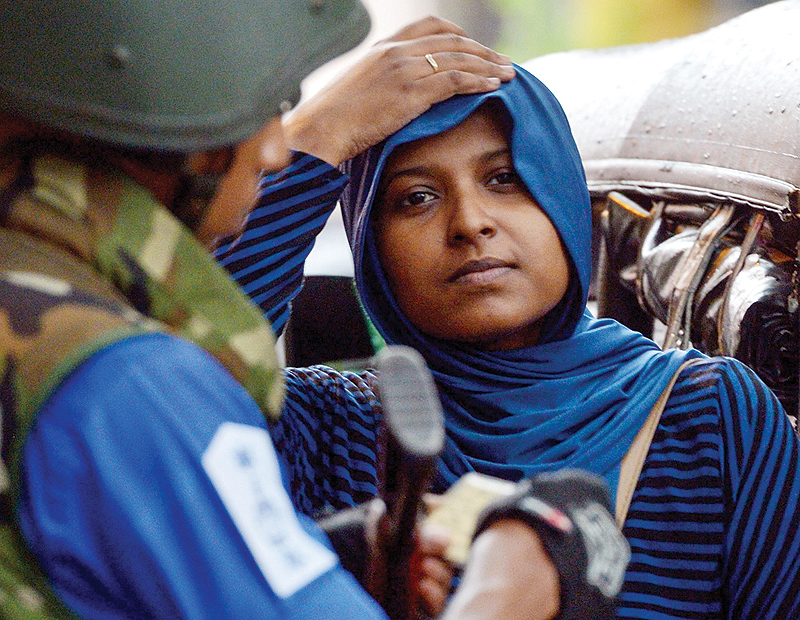COLOMBO: Religious tensions and a government ban on covering the face since the Easter Sunday suicide attacks have forced conservative Muslim women in Sri Lanka to shun veils, headscarves and long robes in public. Muslims in the South Asian nation have felt they are a target ever since suicide bombers killed more than 250 people with their coordinated strikes on six churches and hotels. Many women said they stopped wearing niqab face veils, hijab scarves and abaya robes straight after the attacks, which have been claimed by the Islamic State group.
On Monday, the Sri Lanka government banned women from covering their face in public, bringing it into line with a number of European countries, including France, Denmark and Belgium. Sri Lanka's population of 21 million is a patchwork of ethnicities and religions, dominated by the Sinhalese Buddhist majority. Hindus (12.5 percent of the population) and Muslims (9.5 percent) follow, with Christians fourth (7.0 percent).
"I have stopped wearing the abaya and hijab in the last few days because of the comments and looks I was getting," said one Muslim widow, asking not to be named. "I will start wearing them when the situation is calmer and people are less paranoid," she said. "The hijab has not been banned, but people look suspiciously when they see me in it."
Mareena Thaha Reffai, a Muslim preacher and head of a women's organization, said it was better to comply with the ban than to trigger a religious dispute. "This is not the time to argue about rights. Two hundred and fifty people have died, 500 wounded," Reffai told AFP. "Let emotions go down. Let us talk about this (ban) leisurely." Reffai did not believe there was any rationale for the ban when none of the suicide bombers concealed their identity as they blew up Christian worshippers at three Easter services and foreign tourists as they queued for breakfast at three Colombo hotels.
The country's Roman Catholic leader, Cardinal Malcolm Ranjith, would not weigh in on the ban though he said that some of the Islamic community had called for it. "We can't take a position," the cardinal told AFP. "We don't know what is at the base and behind this strategy… But the Muslim clerics themselves wanted it." Top Buddhist monk Omalpe Sobitha welcomed the niqab ban. "When people cover their faces, we don't know who is behind that veil," he said. "Even criminals could use these clothing to conceal their identity, so it is a good move to ban this." He highlighted how European nations had also banned face covering for security reasons.
Most Sri Lankan Muslim women practice a liberal form of Islam and do not cover their faces in public. One Muslim housewife in her 70s said she never covered her face and had no issue with the ban. "As Sri Lankan Muslims became more educated they shed the purdah," she said. Sri Lanka's council of Islamic clerics had appealed to Muslim women days before the government ban not to cover their faces. "We strongly appeal to our sisters to be mindful of the critical emergency situation now prevalent in our country," the All Ceylon Jamiyyathul Ulama said in a statement. "We advise that in the prevailing situation our sisters should not hinder the security forces in their efforts to maintain national security by wearing the face cover."
Tight security has been imposed with thousands of troops deployed. Cordon-and-search operations staged since the April 21 attacks are a throwback to the country's war-era. Restrictions had eased after government forces defeated separatist Tamil Tiger rebels in 2009. Roadblocks and checkpoints were dismantled allowing free movement. After the Easter attacks, the wartime constraints returned. Several Muslims felt the dress code distracted from the bigger problem: The intelligence failure that led to the devastating attacks. The government has admitted that it had prior warnings about the suicide bombers, but no top minister was told and no one took it seriously enough to avert the disaster. - AFP










